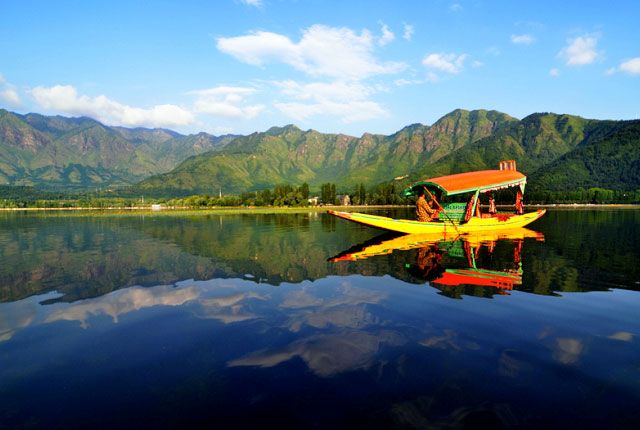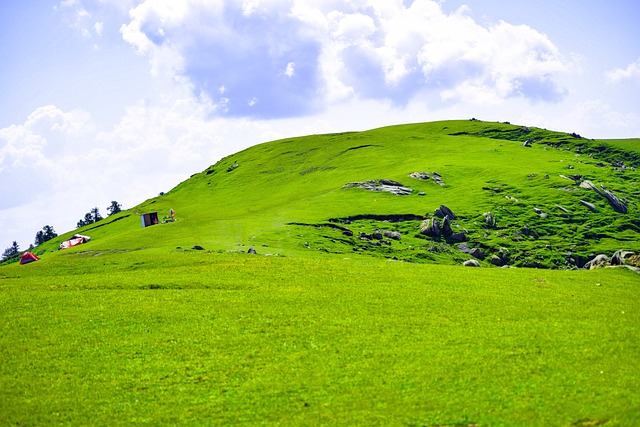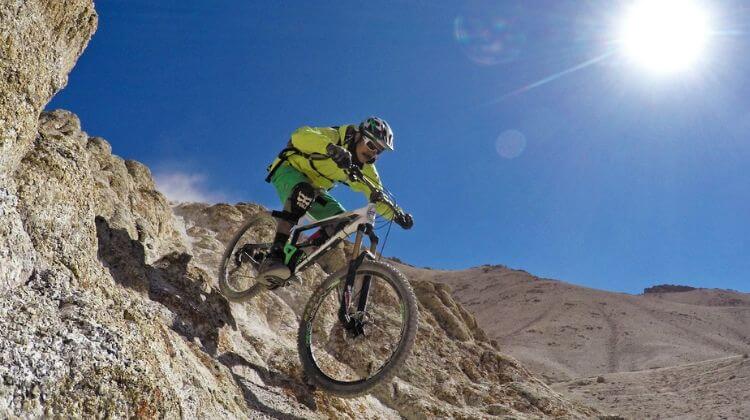
Mountain Biking in Kashmir
Table of Contents
ToggleOverview
Mountain biking in Kashmir is a one-of-a-kind experience combining adrenaline-filled adventure and sheer scenic splendor. Situated within the Himalayas, the Kashmir Valley features treacherous terrain, lush forests, and glinting streams that entice cycling aficionados from all corners of the world. Here is an in-depth guide to all you should know about organizing a memorable bike trip—from selecting the most ideal routes and equipment to safety precautions and local insights. Whether you’re an experienced rider craving challenging terrain or a novice seeking a leisurely ride through meadows, Kashmir mountain biking promises an adventure of a lifetime.
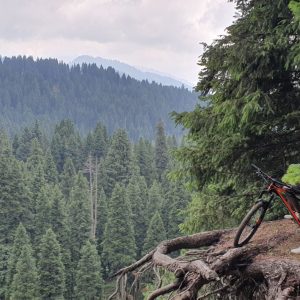
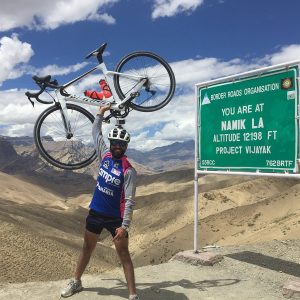

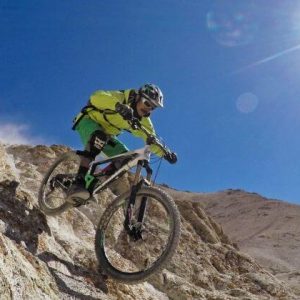
Why Choose Kashmir for Your Next Mountain Biking Adventure?
Kashmir’s dramatic landscapes provide a perfect playground for offroad cycling enthusiasts. Unlike crowded tourist hotspots, these hidden valleys and winding trails offer solitude and a raw connection with nature. The region’s unique topography features:
- High-altitude passes like Zojila and Sinthan, challenging endurance for experienced riders.
- Forest trails around Gulmarg, with pine and deodar cover, perfect for intermediate cyclists who want moderate climbs.
- Lakeside roads along Dal and Nigeen, providing flat, picturesque rides perfect for beginners as well as family outings.
In addition, the local Kashmiri culture provides a rich flavor to your journey. Popping into a village house for a cup of kahwa, swapping tales with shepherds, or relishing a wholesome Wazwan meal after a day’s ride creates memories beyond the saddle. A number of local operators, such as the well-established Golden Wheels, offer customized Kashmir biking tours, so you get to experience genuine hospitality along with challenging terrain.
Planning Your Ride: When to Visit and What to Expect
Seasonal Trends and Best Riding Windows
Kashmir has distinct seasons, each affecting trail availability and riding conditions:
- Spring (April to June)
Conditions: Snow melts to expose green meadows and flowering saffron fields.
Trails Open: Lower-altitude routes around Pahalgam and Gulmarg get rideable by late April.
Highlights: Gentle temperatures (10–20°C), ideal for reconnaissance rides with no altitude strain.
- Summer (July to Early September)
Conditions: Longest days of the year with peak adventure season.
Trails Open: Zojila and Sinthan high passes are open by mid-July.
Challenges: Some afternoons receive sudden showers; it’s imperative to carry light rain gear.
- Fall (Late September to November)
Conditions: Clear air and yellowing leaves make for a dramatic setting.
Trails Open: All routes are open till early November.
Advantages: Less tourist traffic and comfortable riding conditions.
- Winter (December to March)
Conditions: Sufficient snowfall makes all routes impassable.
Snow Biking: For fat bike and winter equipment enthusiasts, Gujjar-Bakarwal trails around Sonamarg provide specialized snow mountain biking opportunities.
Permits and Regulations
Although all but a few of the Kashmir Valley trails are not subject to special permits, passes at high altitudes and routes adjacent to borders might necessitate clearances from local authorities. In case you are visiting towards the Line of Control (LoC) areas or covered wildlife reserves, arrange through a licensed tour operator like Golden Wheels to obtain all the required clearances.
Top Mountain Biking Trails in Kashmir
Following is a description of some of Kashmir’s best-performing trails, each with its own challenges and stunning views.
- Gulmarg Gondola to Alpather Lake
Distance: 25 kilometers one way
Terrain: Mixed forest roads, rocky stream courses, and alpine grasslands
Difficulty: Moderate to difficult
Highlights: Take the world’s highest gondola to Phase II (4,100 meters), then bike to the glacial Alpather Lake. The ride down through pine forests is technical and thrilling.
- Pahalgam to Baisaran Meadows
Distance: 18 kilometers one-way
Terrain: Manicured trails, rolling slopes, with water crossings interspersed
Difficulty: Easy to moderate
Highlights: Locally referred to as “Mini Switzerland,” Baisaran Meadows have green grasslands against the backdrop of jasmine-perfumed pine forests.
- Sonamarg to Zoji La Pass
Distance: 35 kilometers one-way
Terrain: Steep climbs, loose scree, wide mountain views
Difficulty: Hard
Highlights: Ascending to 3,528 meters at Sonamarg and pushing up to 3,528 meters at Zoji La, this route is a ultimate challenge of endurance and bike control.
- Srinagar Waterfront Loop
Distance: 12-kilometer loop
Terrain: Flat, smooth roads along Dal and Nigeen lakes
Difficulty: Easy
Highlights: Best suited for families and beginners wanting to enjoy a leisurely ride amidst floating gardens, shikaras, and Mughal architecture.
Gearing and Pre-Planning: How to Pack for Adventure Cycling Kashmir
Gearing up adequately assures you’re spending time on pure riding fun without worrying about hiccups such as planning logistics. Following is a list of detailed gearing components:
Absolute Bicycle Gadgetry
- Mountain Full Suspension Biking: Suspended shocks for safe descends along rocky tracks; alloyed for strength to be durable enough.
- Extra Tubes & Patch Kit: Sidetrip flatting is more possible on grouted tracks.
- Multi-tool Kit: For last-minute adjustments; add hex wrenches, screwdrivers, and chain breaker.
- Portable Pump & CO₂ Inflator: Lightweight and compact.
Protective Gear
- Full-Face Helmet: Ideal for technical rides and high-speed runs.
- Body Armor & Knee Pads: Provides extra protection when riding loose rock sections.
- Riding Gloves & Eyewear: Safeguards hands from blisters and eyes from dust or branches.
Clothing and Accessories
- Layered Clothing: Temperatures may vary; bring moisture-wicking base layers, insulating mid-layers, and a waterproof outer layer.
- Hydration Pack: At least 2–3 liters capacity with room for tools and snacks.
- Cycling Shoes & Pedals: Clipless pedals for handling or flat pedals with grippy soles depending on rider preference.
- GPS Device / Smartphone Mount: Offline maps are essential in remote locations.
Camping and Emergency Supplies (For Multi-Day Tours)
- Lightweight Tent & Sleeping Bag: Rated for 0–5°C conditions.
- Stove & Cooking Gear: Light canister stove and minimal utensils.
- First-Aid Kit & Emergency Beacon: Always carry a personal locator beacon if riding in remote country.
Prior to departure, organize a proper bike check—with the reputable Golden Wheels workshop in Srinagar, riders can rest assured their equipment is in capable hands. They also provide pre-ride checks and bicycle maintenance to reduce mechanical problems on the trail.
Safety Considerations and Risk Management
Kashmir’s scenic harshness has its price—altitude illness, abrupt climate fluctuations, and wildlife sightings. Accept these safety measures:
- Acclimatization: Spend one whole day at mid-elevation (about 2,000–2,500 meters) prior to undertaking higher-altitude treks to reduce altitude sickness.
- Weather Monitoring: Himalayan weather conditions shift quickly. Consult forecasts through local sources in Srinagar or Pahalgam every morning and have emergency thermal blankets on hand.
- Water Safety: Some trails bisect mountain streams. Shallow water may prove fast and unappetizing. Cross bike-hike your bike if unsure about depth or the power of current.
- Group Riding & Local Guides: Do not ride solo in isolated areas. Ride as a group led by local knowledgable guide groups that grasp trail conditions and enjoy contact with base logistics.
- Wildlife Awareness: Although Himalayan black bear and leopard sightings are uncommon, riders should be aware of how to react—make noise, move calmly, and have bear spray if riding through thick forests.
- Communication Plan: Satellite phones or emergency beacons are essential outside of cellular range. Provide your itinerary to a trusted individual.
Guided Tours, Bike Rentals, and Local Expertise
Though solo riders love their independence, guided Kashmir bike tours are advantageous in that they provide:
- Route Planning & Logistics: Smooth transfer of luggage, food arrangements, and pre-booked accommodation.
- Local Insight: Experience of seasonal trail conditions, secret detours, and cultural hotspots.
- Safety Oversight: First-aid trained guides and backup vehicles.
Golden Wheels offers tailor-made adventure cycling Kashmir tours. Their seasoned staff crafts multi-day itineraries—traversing Sonamarg, and lesser-traveled byways—such that every day combines demanding ride sections with immersion in local culture. They offer top-quality mountain bike rentals, shuttle support, and campsites with comfort amenities, and thus are a first choice among solo travelers as well as groups.
Accommodation, Local Cuisine, and Cultural Highlights
Where to Stay
- Dal Lake Houseboats: Rise to the sound of lotus flowers and floating gardens in quintessential Srinagar experience.
- Pahalgam guesthouses: Family-operated home stays with homestyle food and homey welcome.
- Sonamarg Tented Camps: Bonfire mountains camps with steaming local feasts, suited for multi-day trips.
Relishing Kashmir Cuisine
After an equestrian day, relish:
- Rogan Josh: Scented lamb curry infused with Kashmiri red chilies and yogurt.
- Gushtaba: Ground mutton meatballs in rich gravy—a ritualistic delicacy at Wazwan banquets.
- Kahwa Tea: Saffron-infused green tea with cardamom and almonds—ideal for warming up after cold rides.
- Kashmiri Kebabs & Noon Chai: Pink tea served with flaky samosas or kulchas freshly cooked.
Most guided tours offer gastronomic visits to local restaurants for an authentic sampling of Mughal-influenced Kashmiri cuisine.
Environmental Responsibility: Leave No Trace
As adventure travel in Kashmir increases, maintaining its delicate ecosystem is essential. Practice sustainable cycling practices:
- Stay on Marked Trails: Avoids soil erosion and preserves alpine vegetation.
- Pack Out Trash: Bring all rubbish, food packaging, and personal belongings back to base camps.
- Respect Wildlife: View from a distance, never feed animals, and keep food stored securely.
- Support Local Communities: Use Kashmiri-owned homestays, restaurants, and guiding services to ensure that tourism income benefits locals.
Organizations such as the Himalayan Bike Federation regularly organize trail clean-up drives in Kashmir, providing riders a chance to return to the landscape they ride on.
Getting There and Around: Transportation Tips
International and Domestic Access
- By Air: Srinagar International Airport (SXR) is linked to major Indian cities such as Delhi, Mumbai, and Bangalore.
- By Rail & Road: Jammu Tawi is the closest railway terminus, followed by a 270-kilometer scenic drive to Srinagar. National Highway 44 (NH44) provides beautiful mountain scenery along the way.
Intra-Valley Transit
- Shuttle Services: Several tour operators, including Golden Wheels, offer shuttle vans to transport riders and their equipment between trailheads.
- Local Taxis & Shared Cabs: Cheap for short transfers, but agree on prices beforehand.
- Bicycle-Friendly Transport: Some local buses allow bikes on roof racks—verify schedules and loading procedures beforehand.
Conclusion: Embrace the Ultimate Kashmir Mountain Biking Experience
From the emerald meadows of Pahalgam to the snowy ridgelines of Zoji La, mountain biking in Kashmir offers unmatched adventure cycling Kashmir experiences. With the right preparation—quality gear, local expertise, and respect for the environment—you’ll find every pedal stroke rewarded by awe-inspiring vistas and cultural richness. Whether you join a guided Golden Wheels tour or forge your own path, Kashmir’s trails hold out the promise of challenge and quietude, memories to treasure and stories to tell long after you’ve navigated its rough terrain.
Gear up, plan carefully, and set your sight on the Himalayas—your cycling journey through Kashmir’s mountains and valleys is waiting for you!
How to book Kashmir tour?
Contact a travel agency that specializes in Kashmir tours. You can reach out to the following for assistance:
- Phone:
- +91 7889 655596
- +91 7006 891267
- Email:
Inquire about tour packages, itineraries, and pricing, and confirm your booking for a memorable winter experience!
People Also Ask
What is the best time of year for mountain biking in Kashmir?
The ideal window is late April through early June and September through October, when trails are clear of snow and temperatures range between 10–20 °C—perfect for both high-altitude passes and valley circuits.
Do I need a permit to ride in Kashmir?
Most tourist-focused trails do not require permits. However, high-altitude passes near military zones (e.g., Zoji La) or protected wildlife areas may need clearance. Tour operators like Golden Wheels can handle all paperwork on your behalf.
What are the top beginner-friendly trails?
Beginner riders should consider the Srinagar Waterfront Loop (12 km) around Dal Lake and the Pahalgam-Baisaran Meadows route (18 km) for gentle gradients and well-maintained paths.
How challenging are the high-altitude passes?
Routes such as Sonamarg to Zoji La and Gulmarg to Alpather Lake are rated “hard” due to steep climbs, rocky scree, and thin air above 3,500 m. Proper acclimatization and fitness are essential.
Can I rent a mountain bike locally?
Yes—rental shops in Srinagar, Gulmarg, and Pahalgam offer full-suspension mountain bikes. Golden Wheels, for instance, provides premium bike hire with pre-ride servicing included.
What type of bike is recommended for Kashmir trails?
A full-suspension mountain bike with robust disc brakes, a durable alloy or carbon frame, and tires suitable for mixed gravel and rocky terrain is highly recommended.
How do I prevent altitude sickness on high-altitude rides?
Acclimatize by spending 24–48 hours at 2,000–2,500 m before heading higher, stay hydrated, ascend gradually, and carry altitude tablets or diamox if prescribed by a doctor.
Is guided mountain biking safer than riding solo?
Yes. Guided tours offer local expertise, security support, first-aid trained guides, and logistical assistance. They also navigate sudden weather changes and wildlife encounters more effectively.
What should I pack for a multi-day biking tour?
Essentials include spare tubes, multi-tool kit, hydration pack, layered clothing, first-aid kit, emergency beacon, lightweight tent, and stove. A detailed checklist should be provided by your tour operator.
How do I handle bike repairs on remote trails?
Carry a compact multi-tool, patch kit, spare tube, pump, and chain-breaker. Golden Wheels’ guided tours include support vehicles with spare parts for major repairs.
Are there electric mountain bike (e-MTB) rental options?
Yes, a few rental operators in Srinagar and Gulmarg now offer e-MTBs, providing pedal-assist for tackling steep ascents and longer distances.
Can families and children enjoy mountain biking in Kashmir?
Absolutely. The Srinagar Waterfront Loop and the gentle slopes around Baisaran Meadows are suitable for kids and family rides, with options for half-day rentals.
What local food should I try after a day’s ride?
Recharge with Kashmiri specialties like Rogan Josh, Gustaba, and Kahwa tea. Guesthouses and camps often serve hearty Wazwan feasts to refuel riders.
How reliable is mobile connectivity on the trails?
Mobile coverage is generally good near towns and main roads but becomes patchy above 3,000 m. Satellite phones or personal locator beacons are advisable for remote routes.
Which accommodations are bike-friendly?
Houseboats on Dal Lake, family-run guesthouses in Pahalgam, and tented camps near Sonamarg welcome cyclists, often providing secure bike storage and repair corners.
What safety gear is essential for technical descents?
A full-face helmet, knee and elbow pads, body armor, gloves, and protective eyewear are crucial for rocky, technical sections.
Do local tour operators offer custom itineraries?
Yes. Golden Wheels and other reputable outfits craft personalized cycling tours based on fitness level, interests (e.g., cultural stops), and desired trail difficulty.
How do I book a mountain biking tour in Kashmir?
Most operators accept online bookings via their websites or by email. It’s best to reserve 4–6 weeks in advance during peak season.
What wildlife might I encounter while biking?
Common sightings include Himalayan marmots and pheasants. Rarely, riders may spot black bears or snow leopards in protected areas—always maintain distance and follow your guide’s instructions.
Is winter biking possible in Kashmir?
Fat-bike enthusiasts can explore snow-covered Gujjar-Bakarwal trails near Sonamarg between December and March, but only with specialized gear and local guidance.
How do I respect environmental guidelines?
Practice Leave No Trace: stay on marked trails, pack out all waste, avoid feeding wildlife, and support community-run services to contribute positively to the local economy.
What emergency services are available on the trails?
Guides carry first-aid kits and can coordinate with local health posts in towns. In extreme cases, rescuers use off-road vehicles or helicopters for evacuation.
Can I combine mountain biking with other adventure activities?
Definitely. Many tours pair cycling with trekking, rafting on the Lidder River, or skiing in Gulmarg—providing a well-rounded Kashmir adventure.
What is the average daily distance on a guided tour?
Guided multi-day packages typically cover 30–50 km per day, balancing ride times with cultural visits and rest breaks.
How do I choose the right mountain biking package?
Compare trail difficulty, group size, included amenities (gear, meals, transport), and operator reviews. Look for fully-customizable itineraries and safety certifications—Golden Wheels, for example, offers transparent package breakdowns and 24/7 support.



